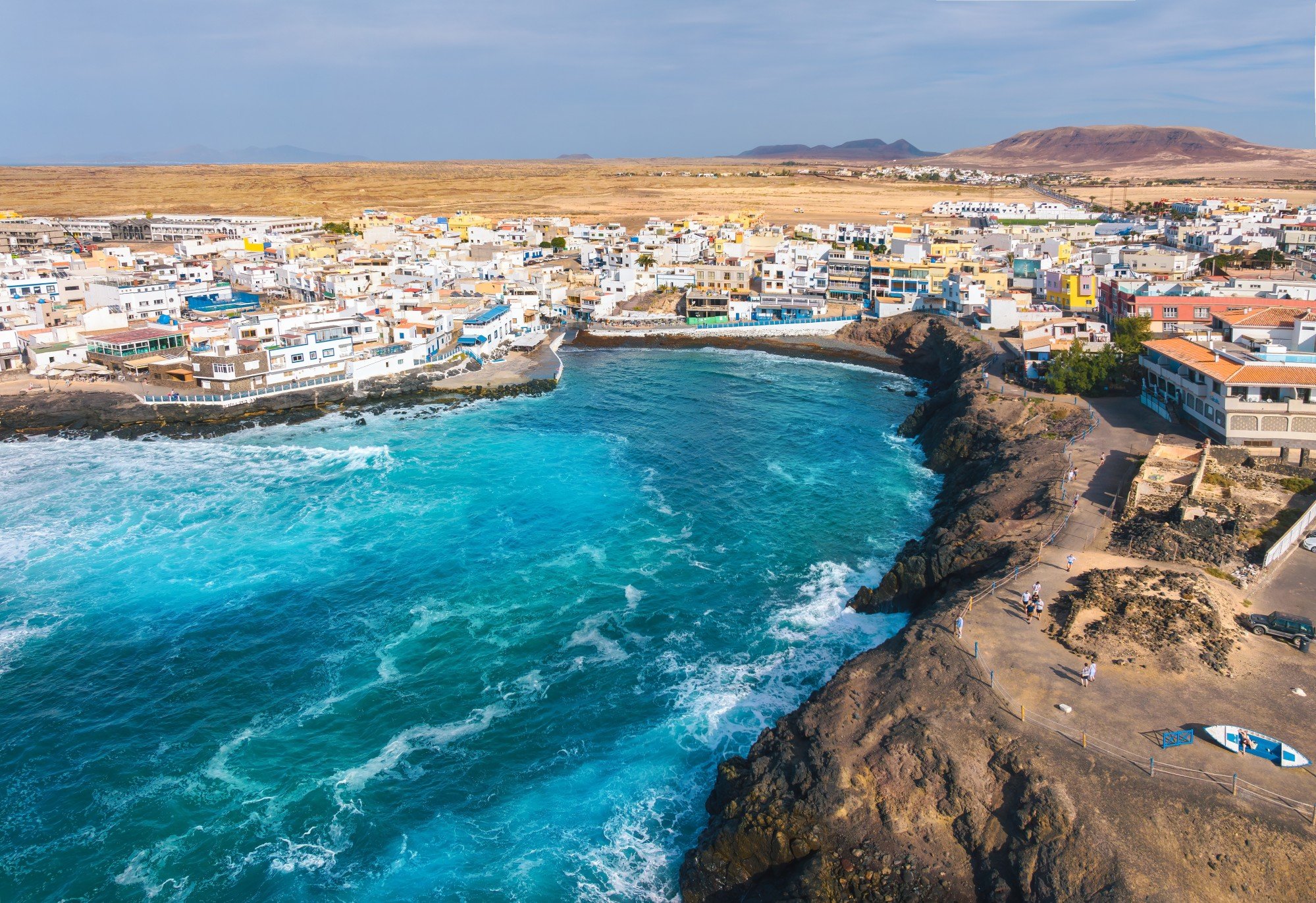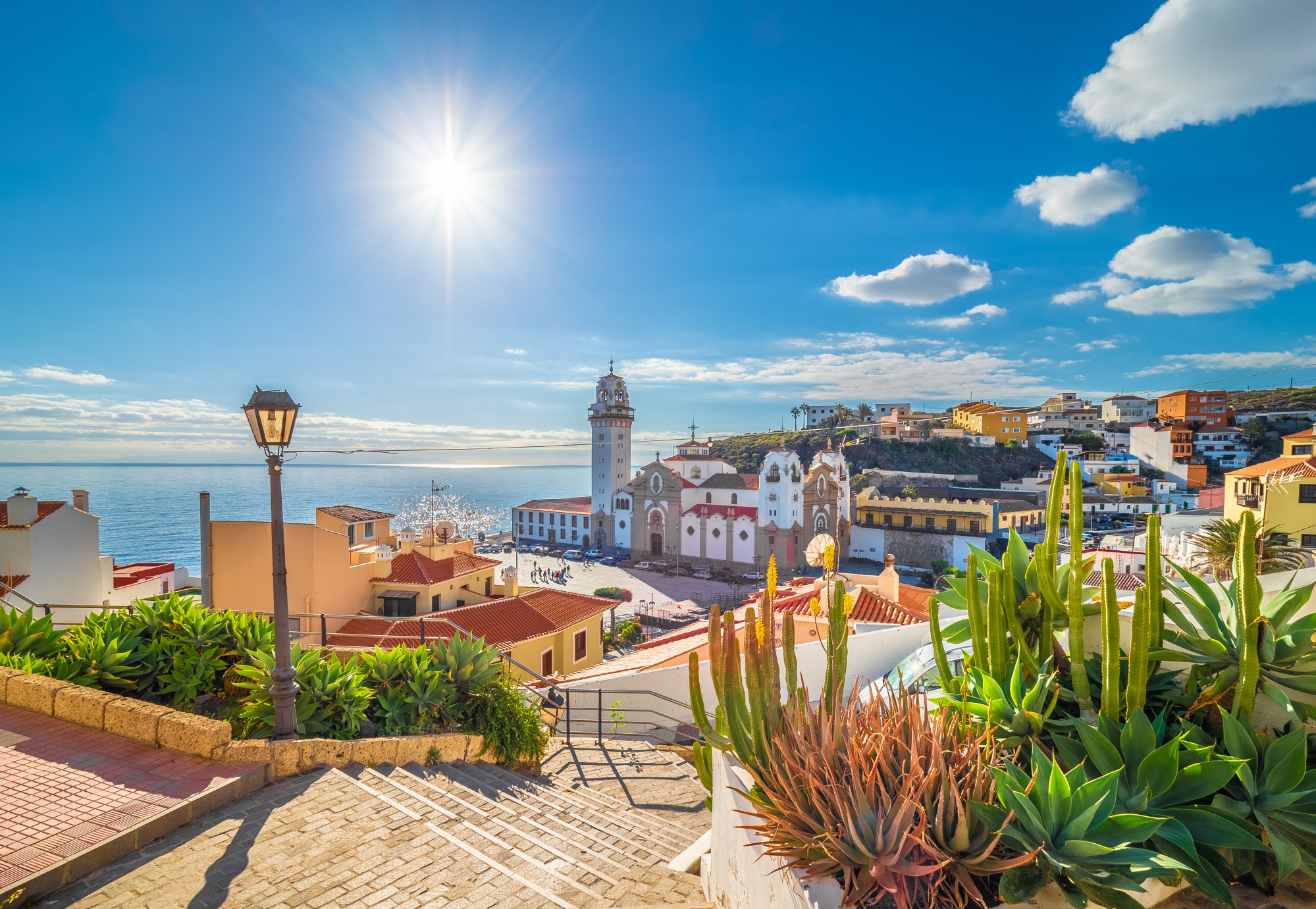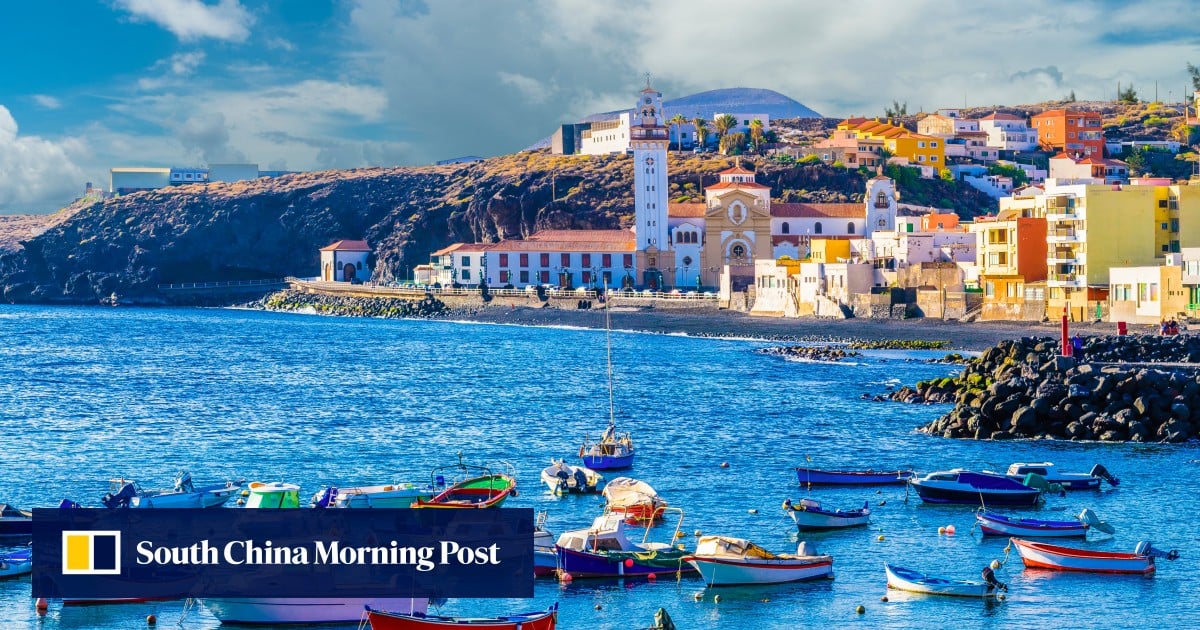Minister of Tourism for the Canary Islands Jessica de Leon said enforcement support for the seven islands’ 35 inspectors is the key to success of the new rules.
“We are going to empower [the police] so that they can act when fraudulent behaviour is detected in homes,” she said.
How travel hotspots from Hanoi to Barcelona are curbing crowds
How travel hotspots from Hanoi to Barcelona are curbing crowds
New-build properties will be barred from the short-let market and property owners with a permit will have five years to comply with requirements that include authorisation from neighbours, according to a draft of the bill.
“The first step is to contain the growth, the second is to clean up [existing listings],” said general director of tourism planning for the Canary Islands, Miguel Rodríguez.
Other parts of Spain have already passed similar laws, but without such an emphasis on law enforcement. Barcelona’s 70 inspectors are sometimes accompanied by police, according to the mayor’s office spokesperson, while Madrid region has eight short-let inspectors and the city’s 65 general planning permission workers have no police backup, their spokespeople said.
Of 17,000 short-term rental flats in Madrid, only 600 were inspected between January and November 2023 and just one was sanctioned, according to a government report. Another 835 hosts stopped renting before being sanctioned, Madrid said.
“What is needed is mass inspections,” said Madrid lawmaker Pablo Padilla, who favours the Canary Island formula.

The Canary Islands decided to toughen its rules after the number of short lets increased dramatically in recent years. El Cotillo, a former fishing village on Fuerteventura, has as many holiday home beds as residents.
“In a few years’ time, there may be practically no people living there,” said researcher Raul Hernandez, from the University of La Laguna, in Tenerife, who co-authored a study showing more than a quarter of short-let premises belong to companies.
The archipelago had a record 220,000 short-let beds in March, a 40 per cent increase from 2022.
The local holiday homeowners association, Ascav, said the stringency of the proposed rules would eliminate 90 per cent of short-term listings and are unconstitutional. It proposes creating a tax for all holiday accommodation providers to fund solutions to solve the housing problem. It also says 200,000 homes are sitting empty on the islands, blaming rent caps to protect long-term tenants from inflation.
Exceltur, Spain’s main tourism lobby, says it backs regulations such as those in the Canary Islands to curb the growth of tourist flats after a study published on Tuesday showed they rose by 25 per cent in Spain’s 25 biggest cities in the year to March. Foreign tourists staying in holiday homes spent €131 a day versus €247 spent by those in hotels in the first quarter of 2024, according to Exceltur.
Our concern is to continue to grow tourism in Spain so that it is sustainable and does not generate social revulsion
Booking.com says it works with authorities in Spain’s Balearic Islands (Ibiza, Majorca, Menorca and Formentera) and Seville to remove unauthorised listings, which will be mandatory in Europe by year-end.
“Airbnb has worked with governments across the world to balance the benefits of home sharing and housing concerns,” Airbnb says. “We will continue working with the Canary Islands to discuss a way forward that works for everyone.”
Meanwhile, rallying under the slogan “The Canaries have a limit”, a collective of groups opposed to overtourism on the islands are planning a slew of protests on Saturday.
The volcanic landscapes and year-round sunshine of the Canaries attract millions of visitors, but the groups want authorities to halt work on two new hotels on Tenerife, the largest and most developed of the seven islands.
They are also demanding that locals be given a greater say in the face of what they consider uncontrolled development that is harming the environment.

Several members of the collective “Canaries Sold Out” began an “indefinite” hunger strike last week to put pressure on the authorities. “Our islands are a treasure that must be defended,” the collective said.
The Canaries received 16 million visitors last year, more than seven times its population of around 2.2 million people.
This is an unsustainable level given the archipelago’s limited resources, Victor Martin, a spokesman for the collective told a recent press briefing, calling it a “suicidal growth model”.
Anti-tourism movements have sprung up elsewhere in Spain and are active on social media.
In the southern port of Malaga, on the Costa del Sol, a centre of Spain’s decades-old “sol y playa” or “sun and beach” tourism model, stickers with slogans such as “This used to be my home” and “Go home” have appeared on the walls and doors of tourist accommodation.

In Barcelona and the Balearic Islands, activists have put up fake signs at the entrances to some popular beaches warning in English of the risk of “falling rocks” or “dangerous jellyfish”.
The influx of tourists also adds to noise and environmental pollution and taxes resources such as water, they add.
In the northeastern region of Catalonia, which declared a drought emergency in February, anger is growing over the pressure exerted on depleted water reserves by hotels on the Costa Brava.
“Our concern is to continue to grow tourism in Spain so that it is sustainable and does not generate social revulsion,” Exceltur vice-president Jose Luis Zoreda told a news conference on Tuesday.
The group said it expects Spain’s tourism sector will post record revenues of €202.65 billion this year.
Natural wonders: a deep dive into Taiwan’s Green Island and Liuqiu Island
Natural wonders: a deep dive into Taiwan’s Green Island and Liuqiu Island
Now that pandemic travel restrictions have been lifted, tourism is back with a vengeance – Spain saw a record 85.1 million foreign visitors last year.
In response, several cities have taken measures to try to limit overcrowding.
The northern seaside city of San Sebastian last month limited the size of tourist groups in the centre to 25 people and banned the use of loudspeakers during guided tours.
The southern city of Seville is thinking about charging non-residents a fee to enter its landmark Plaza de Espana, while Barcelona has removed from Google Maps a bus route popular with tourists, to try to make more room for locals.







